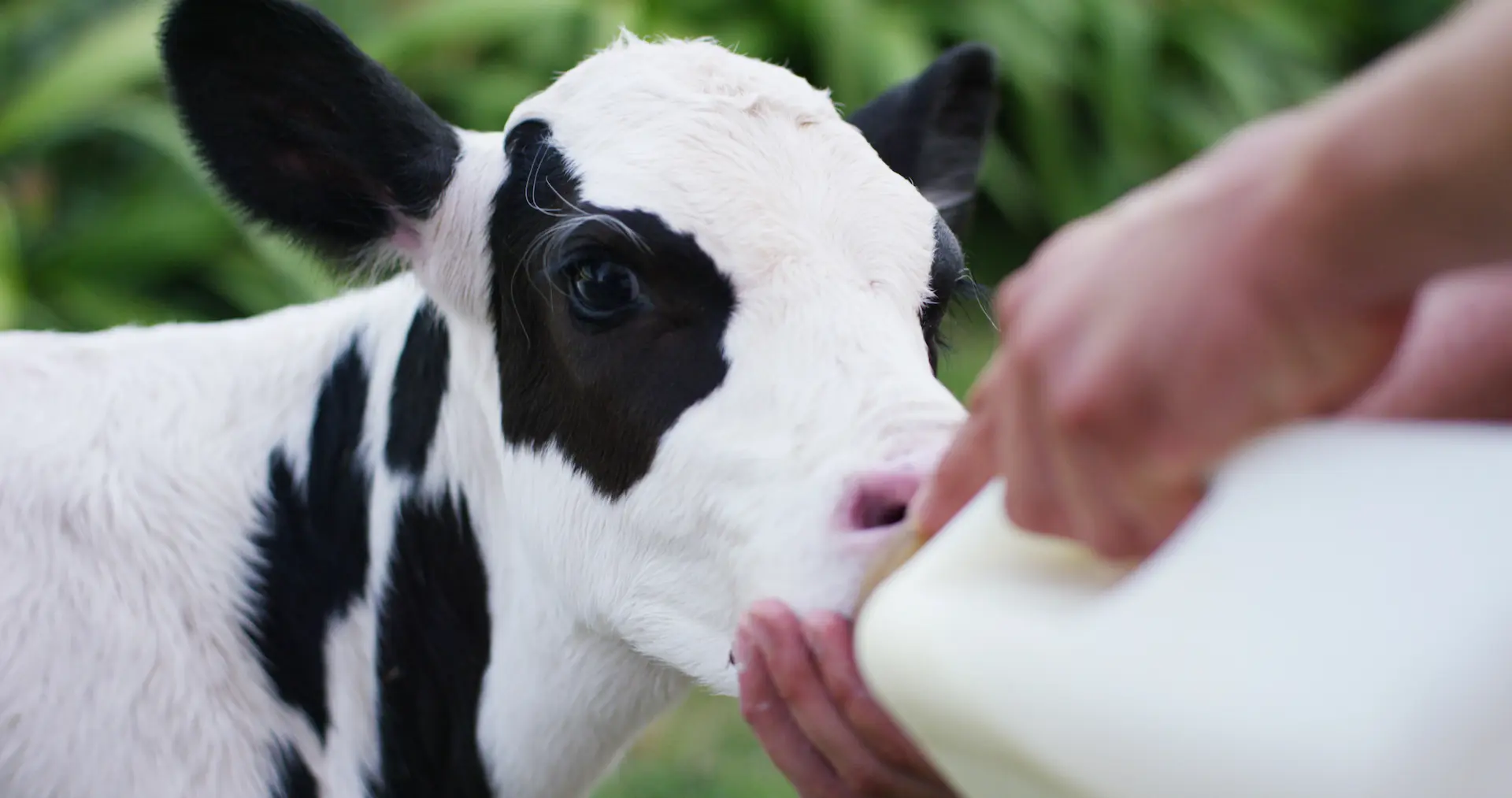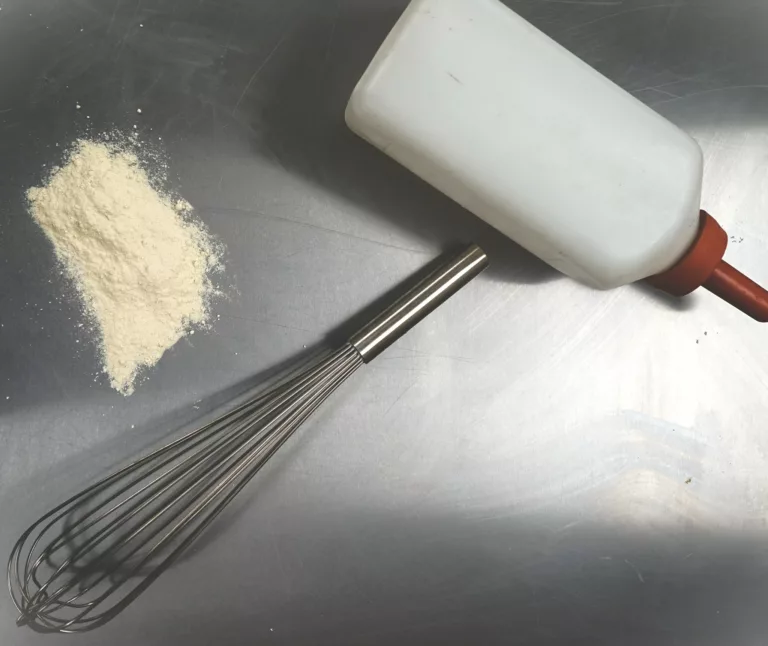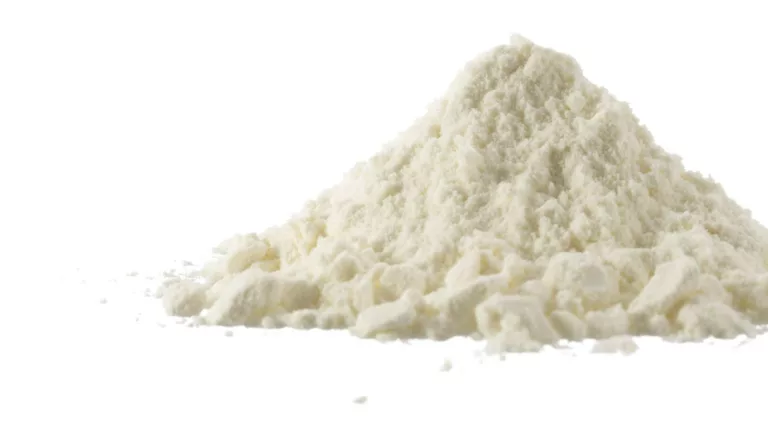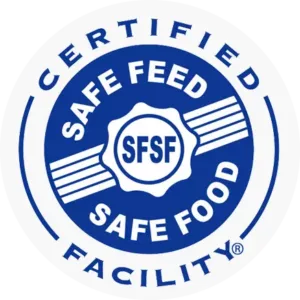Milk replacers for calves are formulated to provide essential nutrients, including protein, that are necessary for the growth and development of young calves. The protein content in milk replacers is a crucial factor in promoting healthy growth and ensuring the proper development of muscle mass and overall body structure in calves.
The protein content of milk replacers can vary a bit depending on management goals, breeds, and feeding intervals. Generally, milk replacers for calves contain protein levels ranging from 20% to 28% on a dry matter basis. The protein is usually derived from high-quality sources such as milk proteins including whey protein concentrate and casein.
Formulated for Growing Calves
Muscle Development: Protein is essential for building and repairing muscle tissues. Adequate protein intake supports the development of strong and healthy muscles, enabling calves to move, stand, and thrive.
Immune System Support: Proteins are essential for the production of antibodies and other immune system components. A well-developed immune system helps calves resist diseases and infections, promoting overall health.
Energy and Metabolism: Protein serves as an energy source, especially during periods of rapid growth. Additionally, protein plays a role in various metabolic processes that contribute to the calf’s overall vitality.
Weight Gain and Body Condition: Calves receiving sufficient protein intake tend to have better weight gain and healthier body condition, which are indicators of proper growth and well-being.
Transition to Weaning: Adequate protein intake helps calves transition more smoothly to solid feeds when weaning time comes.
Protein is Just One Part of a Balanced Milk Replacer Formula
It’s important to note that while protein is crucial, the overall nutritional balance of the milk replacer is essential for optimal calf growth and health. Other nutrients such as vitamins, minerals, fats, and carbohydrates should also be appropriately balanced in the milk replacer formulation.
The specific protein content and formulation of milk replacers can vary based on factors such as the age of the calf, breed, growth goals, and health considerations. Consulting with a veterinarian or livestock nutritionist can help determine the most suitable milk replacer and feeding regimen for the specific needs of your calves.




